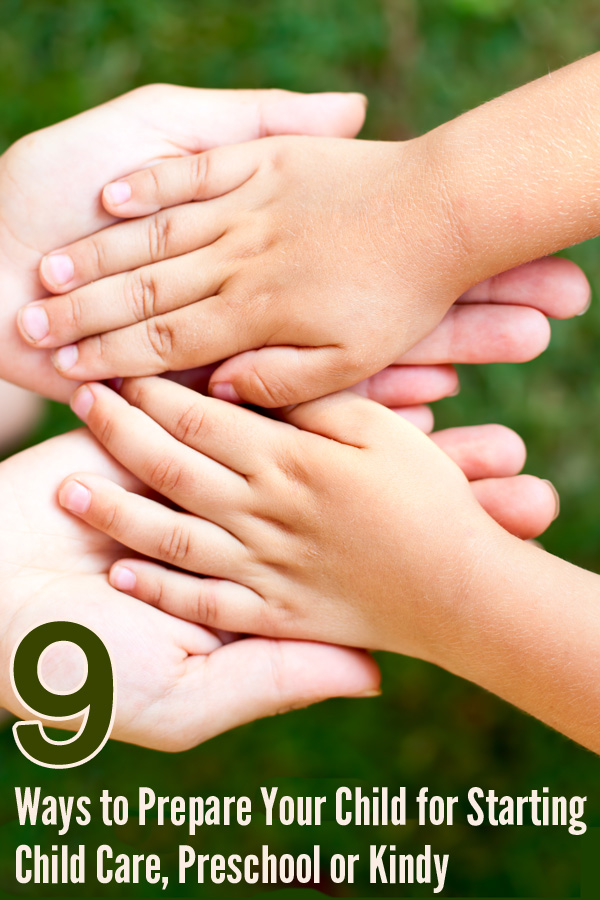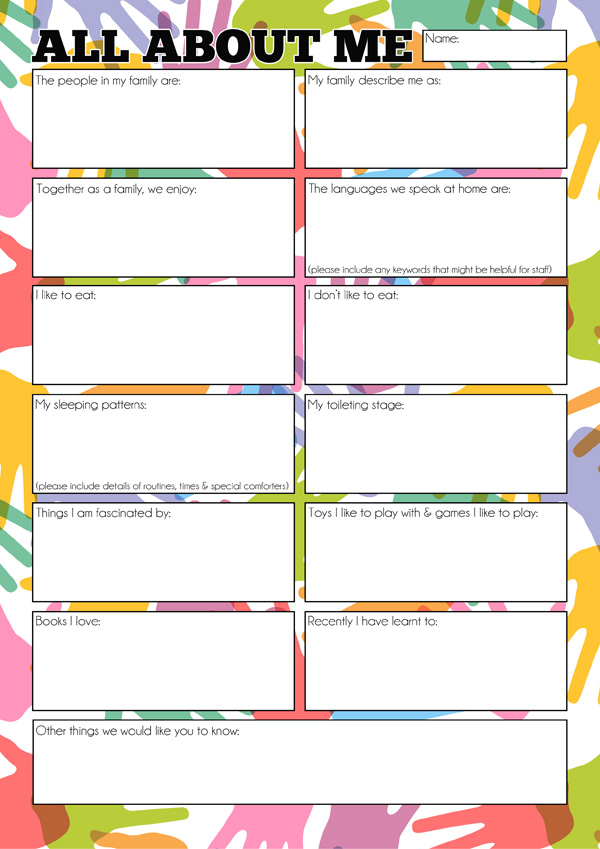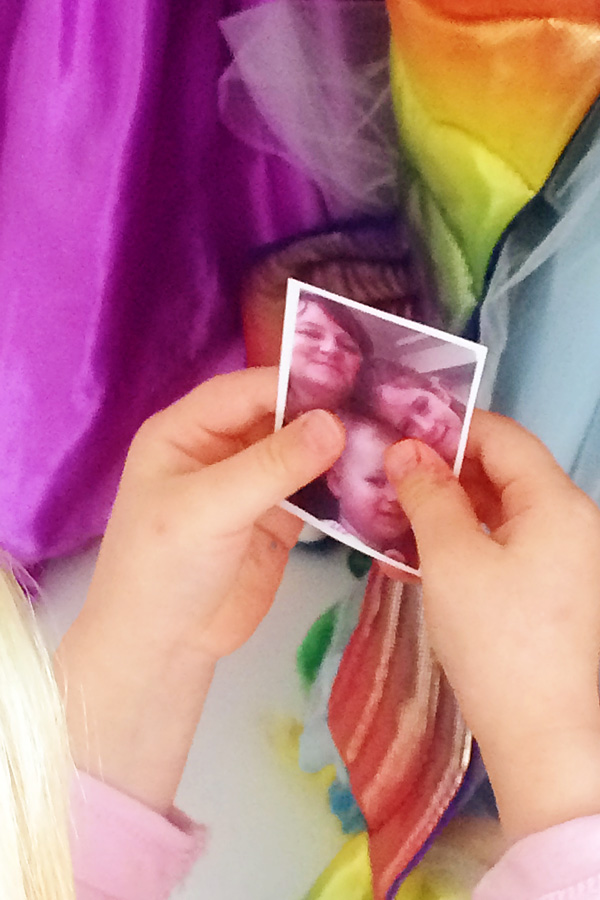9 Ways To Prepare Your Child for Starting Child Care, Preschool or Kindy
This post is sponsored by Starting Blocks.
The first time your little one leaves you to spend time being cared for by someone else is a big day for everyone. And the when, how and why will be different for each of us. However, whatever age or stage your child is in, preparing for this transition is a really important step in this big life change.
For us, it was Immy starting kindergarten. And despite my experiences as an early childhood teacher working in both child care centres and kindergarten, helping hundreds of families with this very transition, I cried buckets! Immy, well, she was just fine!
Many children start at an early learning service with very few experiences of being cared for by anyone other than their parents or other immediate family members and so it is reasonable to expect a degree of separation anxiety as they settle in. However, every child can experience periods of anxiety around attending care at some stage – it might be on the first day, or some time later. It might be because of a change of service, or changes within the staffing team at your regular centre. Think about the anxiety you feel about starting a new job. In the same way, it takes time for children and families to form bonds and feel comfortable with new adults, with different groups of children, and to adjust to new settings and routines. There are however a number of things you can do to help your child (and family) prepare for this new stage.
9 Ways to Help Prepare Your Child (and Family) for Starting Care
1. Choose the right service for your family
The first step in easing your child’s transition is choosing the best care option for your child within your local area – whether that be family day care, centre based child care, preschool or kindergarten. You will feel much more comfortable sending them off on this new adventure if you are confident that you have chosen the care option and individual service that best suits your child and family.
For more information about your options, the new Starting Blocks website has been designed to help parents understand what quality care looks like in practice. It’s a great tool for parents – with information to help you choose the best option for your child, a search tool for finding accredited services within Australia, and information about the importance of quality early childhood education, development and care and its links to better outcomes for children and families.
Starting Blocks has been developed by the Australian Children’s Education and Care Quality Authority (an independent national authority responsible for guiding the implementation of the National Quality Framework (NQF) for Early Childhood Education and Care). The NQF assesses early education and care providers across the country, to give parents consistent and dependable information about local care options for their child and family. The NQF is the result of an agreement between all Australian governments to work together to provide better educational and developmental outcomes for children. It introduces a high quality standard for long day care, family day care, preschool/ kindergarten and outside school hours care.
2. Spend time getting ready together
Talk gently with your child about the upcoming transition, being mindful that the aim is to prepare your child for what is ahead without making them overly anxious or too excited. Take them shopping for a new backpack or lunch box and drink bottle just for ‘school.’ Read stories about starting child care or kindergarten. These types of interactions will help to create a bridge between home and school.
3. Take advantage of any orientation opportunities offered by the service
The aim of orientation sessions is to provide your child with a chance to become familiar with the physical space, staff, routines and other children. It is a great idea to start visiting the service a few weeks before your child starts care, and multiple visits are very valuable.
4. Work together with your service to provide the best care and education for your child
The importance of positive family-centre communication cannot be underestimated when it comes to quality early childhood programs, after all the family is the richest source of information about the individual child and a true learning community welcomes the contributions of all of its members. Both the centre/school and the individual family share responsibility for regular communication about the child.
With regards to children starting in a new program or service, many centres/schools will provide a survey or questionnaire about your child, their family, interests, development and routines in addition to a regular enrolment form (like the sample shown below). This information is important for helping staff welcome your child into the service and for adjusting routines and programs to incorporate their individual needs for care and the learning program.
This free printable All About Me survey sheet is available as a complimentary download for families and those providing an early care service for children. Download here.
5. Develop a morning routine
Being prepared and organised with a regular morning routine will help you to start the day calmly and without rushing. You can find out more about our morning routine here.
6. When the time comes, send them off with a piece of ‘family’
Taking along a family photo, their regular comforter or a favourite (small) soft toy is a lovely way for your child to take a little piece of familiar home and family with them on their new adventure.
7. Acknowledge your own anxiety privately
It’s important to model a sense of confidence and calm to your child as children are very perceptive and will sense how you feel about the upcoming transition, however it is perfectly understandable if you need to take a private moment to acknowledge your own feelings about the change.
8. Don’t be afraid to check in if you feel you need to
Do not hesitate to call your child’s service if you are worried about how they have settled. When you collect your child, ask staff how the day went and check their daily record sheet or program for further information about your child’s day. These snippets of information will help you to talk with your child about their day.
9. When your child is upset
Some children will get upset when it comes to drop off time. If this happens, try;
- Taking advantage of any opportunity offered to go into the room to settle your child to an activity. Once children are engaged in play, it is often easier for them to separate from you.
- Say goodbye and tell your child in a non-clock way when you will be back to pick him/her up (for example, after you’ve had morning tea or after rest time).
- Resist the urge to hang around after saying goodbye.
- If your child is upset, leave them with a staff member. Experienced staff will have a myriad of techniques for supporting your child through their anxiety once you are gone.
- For children experiencing ongoing tears and anxiety at drop off time, consider if it is a general problem of anxiety about attending care or more a case of difficulty separating from Mum or Dad. If separation from one parent is the problem then consider making short term arrangements for the other parent or another family member to assume drop off responsibility. A short period with an alternative drop off person can work to break the anxiety cycle for some children.
Be sure to visit Starting Blocks for more information about quality early childhood programs in Australia. You can also find them on Facebook.
I would love to hear about your family’s experiences in starting child care or preschool. What strategies helped you manage the transition?




Choc full of great info Christie! Thank you.
Fabulous tips for everyone!
That tip of sending a photo or something special that belongs to Mum is gold!
All my years working in childcare that little thing helped lots of kids feel connected and remembered!
Thanks for sharing this info Christie. My youngest is due to start preschool next year, and we’re still waiting to be offered a spot. It’s great to have this info handy if she doesn’t get offered a spot and we need to compare other options….. And then there’s the transition – hopefully it will go smoothly – wish us luck!
Great tips. I’m sure the search tool of accredited services on the Starting Blocks website will be handy! Thanks.
Wow, lots of fabulous info, thanks.
Thanks for stopping by, Trixi 🙂
Kids are really susceptible to changes in their schedule. So I like your tip about describing their new schedule at a day care. I’ll have to try that with my little girl.
This is a great help to parents to prepare their kids to send to a child care facilities. It is very important since some of the kids is not yet ready to go to a school that’s the reason where they will cry when their parents will drop them off at school. These criteria provided above is direct to the point is very informative.